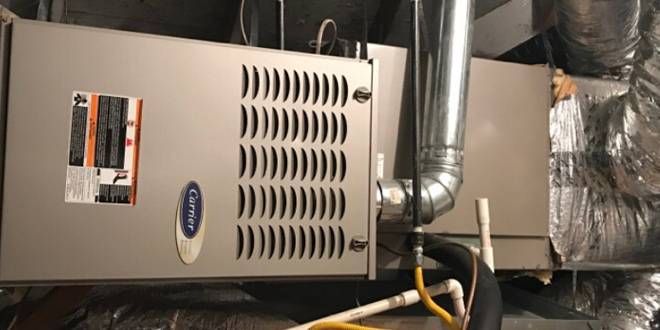
Heating oil, a key component in keeping millions of homes warm and comfortable during the colder months, has been a reliable source of heat for decades. Originating from the refinement of crude oil, heating oil has evolved into an efficient, safe, and cost-effective heating option for residential properties. This article aims to demystify what heating oil is for homeowners, providing essential insights into its use, benefits, and considerations.
What is Heating Oil?
Heating oil is a refined, liquid petroleum product specifically designed for use in domestic heating applications. It is characterized by its low viscosity, which allows it to flow easily, and its high energy content, enabling it to produce a substantial amount of heat from a small volume. This fuel is created through the distillation of crude oil, where it is separated and refined to meet specific standards for residential heating. The result is a cost-effective, efficient fuel source that can be stored safely in tanks and used in furnaces and boilers to generate heat for homes.
Uses
Domestic heating oil primarily powers furnaces and boilers within residential settings, enabling these heating systems to provide consistent and controlled heat distribution through radiators, underfloor systems, or forced air vents. This ensures homes stay comfortable even in the harshest winter conditions.
Benefits
- Efficiency: Its high energy content translates into more heat output per gallon, positioning it as an efficient option for residential heating.
- Versatility: Adaptable to various heating system technologies, from traditional to high-efficiency models, making it a flexible choice for different home configurations.
- Availability: Widely available, particularly in regions where natural gas is not an option, offering a reliable heating solution for many households.
Advancements
The sector has seen significant improvements, such as developing low-sulfur varieties and biofuel blends (e.g., Bioheat), which aim to reduce environmental impact while enhancing system efficiency and durability.
Types of Home Heating Oil and Their Characteristics
Understanding the various types of residential heating oil and their characteristics is crucial for homeowners to make informed decisions about their heating needs. The differences among these types can affect heating efficiency, system compatibility, and environmental impact. Here, we explore the primary types of heating oil used in residential settings, highlighting their unique properties and applications.
1. Standard Heating Oil (No. 2 Heating Oil)
- Description: No. 2 heating oil is the most common type used in homes for central heating. It is a middle distillate petroleum product, similar in composition to diesel fuel.
- Characteristics: It has a moderate sulfur content, which has been reduced over the years to minimize air pollution and system maintenance requirements.
- Applications: Ideal for use in most residential oil furnaces and boilers, balancing efficiency and cost.
2. Low Sulfur Heating Oil
- Description: A cleaner version of standard heating oil, low sulfur heating oil contains significantly less sulfur content than conventional No. 2 heating oil.
- Characteristics: The reduced sulfur content leads to fewer emissions and less maintenance for heating systems, as it minimizes the buildup of soot and other combustion by-products.
- Applications: Suited for homeowners looking to reduce their environmental footprint and improve indoor air quality without switching fuel types.
3. Bioheat
- Description: Bioheat is a blend of biodiesel and traditional fuel oil. Biodiesel is made from renewable resources like vegetable oils, animal fats, or recycled restaurant grease.
- Characteristics: Bioheat burns cleaner than standard heating oil, producing lower levels of greenhouse gases and particulates. It is available in various blend levels, commonly referred to by the percentage of biodiesel they contain (e.g., B5, B20).
- Applications: An excellent option for environmentally conscious consumers, Bioheat is compatible with existing residential and commercial heating oil systems and does not require modification.
4. Kerosene (No. 1 Heating Oil)
- Description: Kerosene is a lighter and more refined fuel than No. 2 heating oil, with a lower freezing point.
- Characteristics: It is less viscous and evaporates at lower temperatures, making it suitable for outdoor storage or in areas with extremely cold weather.
- Applications: Primarily used in outdoor tanks to prevent gelling in cold temperatures and for certain types of portable heaters.
Environmental and Efficiency Considerations
Choosing the right type of heating oil can have significant implications for both the environment and heating system efficiency. Lower sulfur options and biofuel blends offer cleaner burning alternatives, contributing to a reduction in household carbon footprint and improved air quality. Additionally, these cleaner fuels can enhance system efficiency and longevity by reducing the buildup of harmful deposits within the heating system.
Heating Oil Systems: Components and Maintenance
For homeowners utilizing heating oil, understanding the key components of their oil heating system and adhering to a regular maintenance schedule is critical for ensuring efficiency, longevity, and safety. This section outlines the essential elements of a heating oil system and provides maintenance tips to help homeowners keep their systems running smoothly.
Key Components of a Heating Oil System
- Oil Tank: The storage unit for heating oil until the furnace or boiler needs it. Tanks can be situated above ground, either outside or in a basement, or buried underground.
- Oil Furnace or Boiler: The heart of the heating system that burns heating oil to produce heat. Furnaces heat air to warm the house through ductwork, while boilers heat water, circulating steam or hot water through pipes to radiators or underfloor heating systems.
- Fuel Filter: Cleans the heating oil before it enters the furnace or boiler, removing impurities that could hinder combustion efficiency.
- Oil Pump: Delivers heating oil from the tank to the burner, atomizing it into a fine mist for more efficient combustion.
- Burner: The component where the air mixes with the atomized heating oil, igniting to generate heat.
- Thermostat: Monitors and regulates the temperature in the home, signaling the heating system to turn on or off as needed.
Maintenance Tips for Heating Oil Systems
- Regular Inspections and Cleaning: Schedule annual inspections and cleanings with a qualified technician to ensure your system operates efficiently and to prevent malfunctions. This includes checking the burner, heat exchanger, and ventilation system.
- Tank Maintenance: Inspect your oil tank regularly for signs of leaks, rust, or damage. Indoor tanks typically last longer than outdoor tanks, but all types should be monitored to avoid environmental hazards and costly cleanups.
- Filter Replacements: Change the fuel filter at least once a heating season or as recommended by your service technician to maintain fuel quality and protect your furnace or boiler from damage.
- System Tune-ups: Have a professional perform a tune-up annually. This usually involves adjusting the burner for optimal efficiency, checking the fuel lines, and ensuring the system’s safety mechanisms function correctly.
- Keep an Eye on Oil Levels: Regularly check your oil tank level to avoid running out of fuel. Running out can introduce air into the system, leading to potential operational issues or the need for a system restart by a technician.
- Address Repairs Promptly: If you notice any issues, such as unusual noises, smells, or a decrease in heating efficiency, contact a professional for repairs immediately to prevent further damage or inefficiency.
Adhering to a regular maintenance schedule not only prolongs the life of your heating oil system but also ensures it runs efficiently, keeping your heating costs down and your home comfortably warm. Additionally, well-maintained systems are less likely to encounter emergencies, offering homeowners peace of mind throughout the heating season.
Economical and Efficient Use of Heating Oil
Maximizing the economical and efficient use of heating oil is essential for homeowners looking to manage their heating costs while maintaining a comfortable and warm living environment. This section provides strategies for achieving cost savings and enhancing the efficiency of heating oil consumption.
Strategies for Cost Savings
- Purchase Heating Oil in Off-Peak Seasons: Prices for heating oil can fluctuate throughout the year, generally peaking in the colder months when demand is highest. Buying your heating oil in the summer or early fall can result in lower prices.
- Explore Bulk Buying Options: Some suppliers offer discounts for bulk purchases. If you have the storage capacity, consider buying more heating oil to take advantage of these savings.
- Join a Heating Oil Buying Group: Pooling resources with neighbors or joining a community buying group can lead to reduced prices through collective bargaining power.
- Consider Price Protection Plans: Some heating oil suppliers offer price protection or fixed price plans that can help stabilize costs throughout the heating season, protecting you from market volatility.
Tips for Enhancing Efficiency
- Upgrade to a High-Efficiency Heating System: Modern, high-efficiency furnaces and boilers use less heating oil to generate the same amount of heat (Annual Fuel Utilization Efficiency), significantly reducing your fuel consumption and heating bills.
- Regular Maintenance: As mentioned previously, keeping your heating system well-maintained ensures it operates at peak efficiency. This includes annual servicing, cleaning, and timely repairs.
- Improve Home Insulation: Enhancing your home’s insulation and sealing leaks around doors, windows, and other openings can dramatically reduce heat loss, meaning your heating system needs to burn less fuel to maintain comfortable temperatures.
- Install a Programmable Thermostat: This allows you to set your heating system to operate only when needed, such as lowering the temperature when you are asleep or away from home, which can lead to significant savings on heating oil.
- Utilize Heating Oil Additives: Certain additives can improve the efficiency of your heating oil, helping it to burn cleaner and more completely. This can reduce fuel consumption and prevent the build-up of deposits in your furnace or boiler.
- Optimize Your Heating System’s Distribution: Ensuring that your home’s heating distribution system, whether it’s radiators, forced air, or another method, is properly balanced and unobstructed can also improve efficiency. Regularly bleed radiators and ensure vents are not blocked by furniture or curtains.
By implementing these strategies, homeowners can enjoy the warmth and comfort provided by heating oil in a more economical and efficient manner. Making informed decisions about when to buy heating oil, how to maintain your heating system, and ways to reduce consumption can lead to substantial savings and a reduced environmental footprint.
Safety and Environmental Considerations
When utilizing heating oil for residential heating, safety and environmental considerations are paramount. Proper handling, storage, and usage of heating oil not only ensure the safety of your home and family but also contribute to environmental protection. This section outlines best practices for managing heating oil safely and with minimal environmental impact.
Safety Practices for Heating Oil
- Regular Tank Inspections: Periodically inspect your heating oil tank for signs of wear, corrosion, or leaks. Early detection of potential issues can prevent environmental contamination and costly cleanups.
- Professional Installation and Maintenance: Always use certified professionals for the installation and maintenance of your heating oil system. Proper setup and upkeep reduce the risk of leaks, spills, and malfunctions.
- Emergency Plan: Be prepared for potential spills or leaks. Know how to shut off your heating system quickly and have contact information for your heating oil supplier and local environmental protection agency readily available.
- Proper Disposal of Old Heating Oil: If you need to dispose of old or contaminated heating oil, never pour it down drains or onto the ground. Contact your local waste management authority for guidance on proper disposal methods.
Environmental Considerations
- Use of Low-Sulfur and Biofuel Blends: Opting for low-sulfur heating oil or biofuel blends like Bioheat reduces emissions of sulfur dioxide and other pollutants, contributing to cleaner air and a healthier environment.
- Efficiency Upgrades: Investing in a high-efficiency heating system not only saves on heating costs but also reduces your carbon footprint by burning less fuel to achieve the desired warmth.
- Energy Conservation Measures: Enhancing your home’s insulation, sealing drafts, and adopting energy-saving habits can significantly reduce your overall heating oil consumption, lessening environmental impact.
- Support Renewable Energy Research: Consider contributing to or investing in renewable energy initiatives and research focused on creating more sustainable and eco-friendly heating solutions.
By adhering to these safety and environmental practices, homeowners can safely enjoy the benefits of heating oil while contributing to the preservation of the environment. The heating oil industry continues to evolve, with ongoing improvements to enhance safety, efficiency, and environmental sustainability. As consumers, making informed choices about our energy use and adopting responsible practices are steps toward a cleaner, safer, and more sustainable future.
Ready to Warm Up?
Embrace a cozy, efficient home this winter with Spencer Air Conditioning and Heating. 🏠💡 Opt for the best in heating oil solutions and expert service. Join us in our commitment to safety, efficiency, and sustainability. Contact us today to ensure your home stays warm, safe, and eco-friendly all season long. 🔥🌿 Your comfort is our priority!




